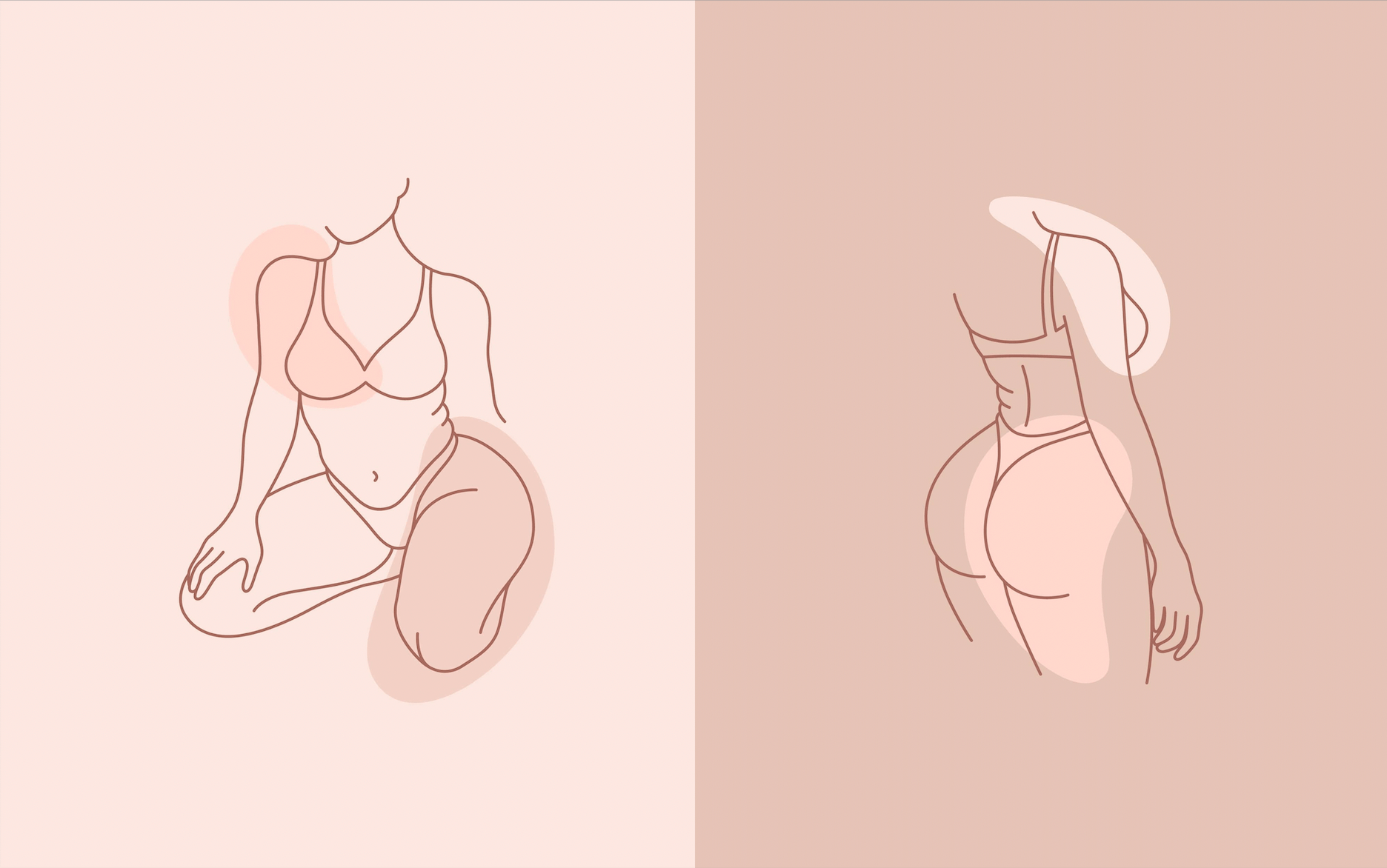Blog

Where does Diet Culture come from?
Dismantling the Decades of Disembodiment
To trace how diet culture came to be, it’s paramount to determine what is actually meant by the referral “diet culture”.
Diet culture can be understood as a system of socially conditioned and constructed beliefs that thinness is synonymous with health and associated with a sense of moral virtue.
Diet culture often offers a culturally prescribed body shape – an ideal that preaches an ever shrinking, “skinny”, and sickly form often attained through restriction and deprivation.
It advocates weight-loss as a means of attaining a higher health-status and sense of virtuosity, and consequently oppresses those who do not meet this thin-ideal. Certain foods and food groups are elevated, while others are demonised (buh-bye carbs).
The Origins
Diet culture can be traced back to as early as Ancient Greek society, in which regulation and moderation of food intake was promoted as a means to attain “calmness” and a marker of supreme self-control – one of the highest virtues [4].
Health was understood as a state of dynamic equilibrium between the internal and external, therefore the exterior was moderated modified by internal intake [Ibid.].
The body is often a medium of culture or society – it is the fleshy encasement understood to display individual choices. Consequently, within Ancient Greek society control of one’s food intake was positioned as a means for the individual to attain health as well as an aesthetically pleasing body. A healthy body was, within this historical context, a balanced body.
Anorexia Mirabilis – Holiness and Starvation
Following the establishment of Christendom in the first few centuries after Christ, many early Christians came to regard the body as the enemy of the soul. Founders such as St. Anthony, St. Augustine, the early Desert Fathers, St. Jerome and St. Basil would engage in excruciatingly long fasts and self-deprivation (asceticism) as an act of physical purgation and a means to attain communion with God and tame the unruly animalistic body [2].
This act, anorexia mirabilis, or ‘holy anorexia’ could be understood as the basis for modern day diet culture’s association between virtuosity and dietary choices and the apparent morality of food (i.e. “good foods” vs. “bad foods”).
The idea of being “fat” or living in a larger body as being a sign of immorality and a lack of self-discipline persists in today’s culture in the form of self-proclaimed fitness gurus “motivational” terms when they ask client’s if they’ve been “good” or “bad” based on how vigorously and/ or consistently they’ve excised and stuck to chicken, broccoli, and rice (bro).
The First Diet Book – Discourses on the Sober Life: The Art of Living Long
Despite the cultural revolution sweeping across the world in the 1500s, during the Renaissance, the idea of obesity and depravity persisted, and perceived gluttony was still regarded as sinful – to such an extent that Luigi Cornaro’s – a venetian nobleman – diet book Discourses on the Sober Life: The Art of Living Long became one of the most celebrated, and the first published, diet book.
From his late 30s onwards, after indulging in a life of excess, he began a very strict and restrictive diet – eating only approximately 100g of food per day on the proviso of attaining longevity [3].
Subsequently a number of other diet-related books were published throughout the 1500- 1700s, that paved the way for 19th century dietary practices and the emergence of modern-day diet culture.
1800s – The Emergence of Modern Diet Culture and Dieting
Throughout the mid to late 1800s, the ideal masculine and feminine frame was thin and determined to be romantic in a sickly way.
Clothing became very form fitting for both sexes – with women laced into bone-crushingly tight corsets, and men trussed up in breaches. Consequently, in order to attain this silhouette, radical diets develop – such as Lord Byron’s (a famous poet) vinegar diet – in which he’d drink vinegar several times a day with water (does it remind you of today’s apple cider vinegar diet at all?). Several Victorian women were reported to have died from imitating their romantic idol [1].
Around 1850, the idea of “Victorian Anorexia” developed in which women would undergo self-imposed starvation to look as thin and frail as possible [Ibid.]. As a result, it was during this time period that the first low-carb diet, diet-retreats, and calorie counting books, and diet diaries were developed and promoted to the masses as a means of weight-management.
2021 – Quick Fixes & Fad-tastic Diets
Fast forward to 2021, in which we’ve seen, heard of, read about, tried (and probably ‘failed’) at the Cabbage Soup diet, or the Grapefruit diet, Intermittent Fasting, the One-day diet, the Scarsdale diet, the Zone diet, the South Beach diet, the F-Plan diet, the GI diet, the Atkins, the Dukan, the MacDougall Plan, the Prism, the Pritikin, the Hay, the Hollywood, the Russian Air Force diet, the caveman diets, detoxifying diets, hypno-diets, negative calorie, food-combining diets, the magic-bullet diets, the keto diet, the 5:2 diet [1] , and many other erroneous, quick-fix and fad-tastic dietary protocols that require restriction in one form or another, deprivation, and the demonisation of one or more food groups.
Diet culture has been condensed to a perfectly palm-sized and phone encased portion of prescriptive diet/ fitness-based technology – with apps such as MyFitnessPal keeping track of your calorie consumption and micromanage any (potential) morsel to pass your lips. It enables you to set yourself goals (founded on a conditioned ideal) and record each and every bite that brings you closer to – or further away- from the scale weight you’ve determined that will bring salvation and deliver you from the burden of crippling body-imaged base self-critique.
We can constantly and consistently self-monitor and engage in this endless process of self-surveillance digitally in culmination with the little mirror pinches, stomach prods, and body checks.
BUT, emaciation is not emancipation in this context, as weight-loss is not the panacea for curing mental and physical ailments, and yet diet culture perpetually propagates it as a skin-and-bone salve.
If we are to learn anything from history, it is that fundamentally diets do not work and unrealistic body goals are always going to be unattainable – if they truly did, then why would we have been caught in this cycle of starvation and deprivation since the 9th Century BC?
Diet culture – as I first said, a belief system, and you honey can chose to stop believing in it and re-direct all that wasted energy into believing in yourself any time you feel ready. You need only look back over this timeline to see how flexible and ever-changing diet culture is.
There will always be a new goal post, always a new fad with the same harmful and unsatisfactory result – eroded trust with your body, slowed metabolism, inadequate nutrition among others.
Choose to believe that you are more than just a body, you are more than the number of a scale. and YOU have the capacity to be more than you have ever felt yourself to be and lead a life beyond the confines of counting calories and pondering portions.
If you’re ready to reclaim your body, dismantle diet culture, and learn how to believe in yourself, please email [email protected] as we’d love to help you foster a little more self-love.
Charlotte Munro, BSc
EHL Team x
References
- Foxcroft, Louise (2011) Calories and Corsets: A History of Dieting over 2000 Years, Londone: Pinecroft Books.
- Griggin, J and Berry, E.M (2003), ‘A modern day holy anorexia? Religious language in advertising and anorexia nervosa in the West, European Journal of Clinical Nutrition, 57, pp. 43-51.
- Le Conteur, D and Simpron, S (2018), ‘90th Anniversary Commentary: Caloric Restriction Effects on Aging’, The Journal of Nutrition, 148(10), pp. 1656 – 1659. doi: https://doi.org/10.1093/jn/nxy146
- Yanis, T (2009), ‘The historical origins of the basic concepts of health promotion and education: the role of ancient Greek philosophy and medicine’, Health Promotion International, 24(2), pp.185-192. doi: https://doi.org/10.1093/heapro/dap006














